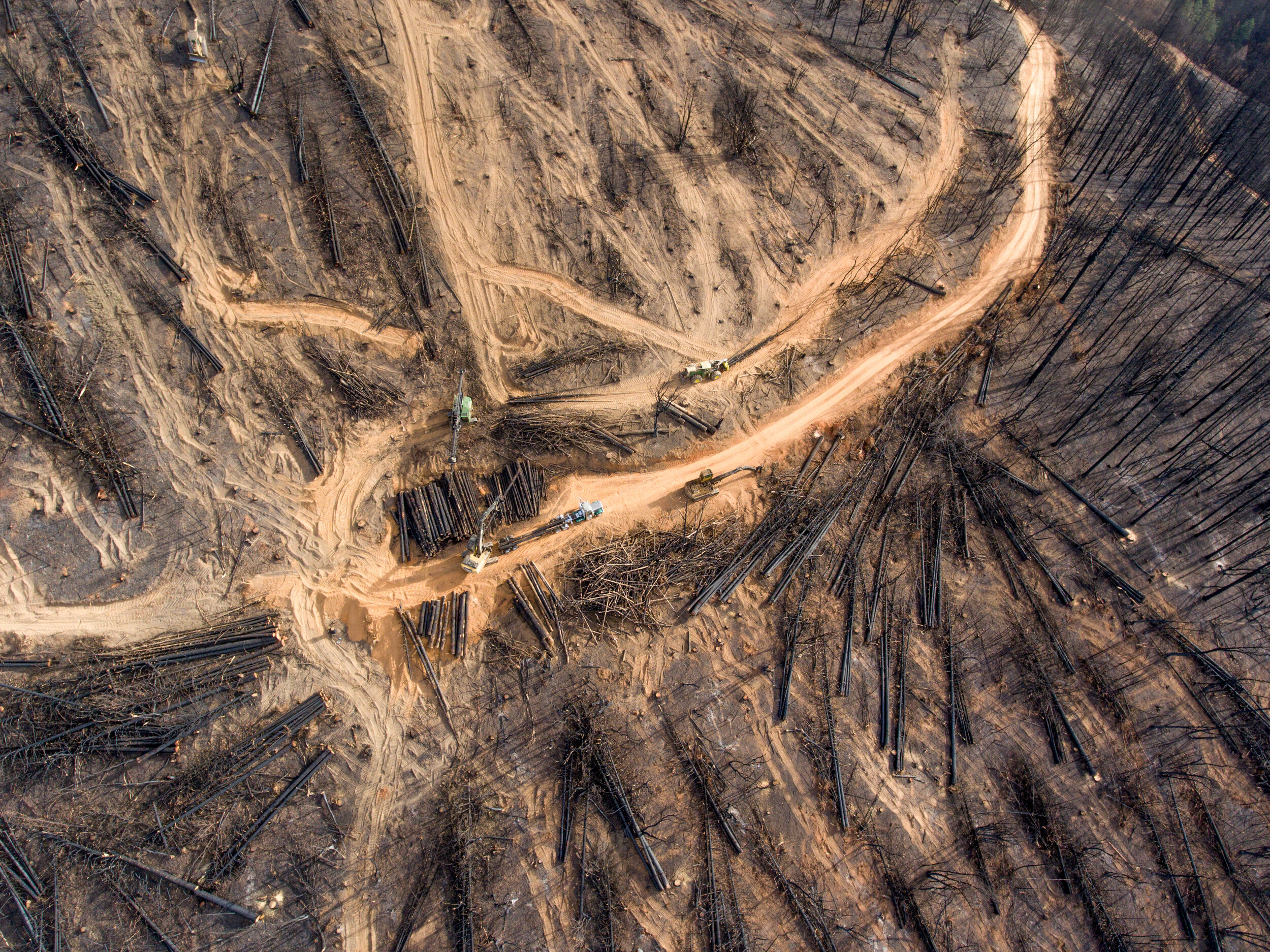
Logging and Fire
Salvaging timber is scuttling forests.
DESTRUCTIVE.
The results of salvage logging after the Stouts Creek Fire in the Umpqua National Forest, Oregon. Photo by Francis Eatherington, 2016.
Post-fire salvage logging causes extreme environmental damage including irrecoverable loss of forest soils, polluted streams, destroyed fish and wildlife habitat. It sets back natural recovery while immediately increasing hazardous fuel loads and wildfire risks.
EXPLOITATIVE.
Heavy logging equipment causes heavy damage that erodes sensitive burned soils that causes sedimentation and siltation of forest streams.
Post-fire salvage logging provides no ecosystem benefits--it is exclusively about quick profits for private logging companies. Salvage timber sales are offered at “fire sale” prices that routinely net a loss for taxpayers who also get stuck with the bill for restoring damaged logging sites.
Roadside Hazard Tree Removal: Another Salvage Timber Scam
Relevant Articles to Learn More
'It’s absolutely insane’: Swaths of trees cut after Oregon fires amid allegations of mismanagement
Willamette National Forest’s hazard tree hysteria
The Slippery Slope of Hazard-Tree Logging
Experts scrutinize Oregon’s troubled hazard tree removal project
Arborists say ODOT post-fires tree cutting is excessive, rushed
Oregon's post-fire logging is taking trees that may never be hazards, experts say
Oregon Conservation Groups Call For Protection From Post-Fire Logging



